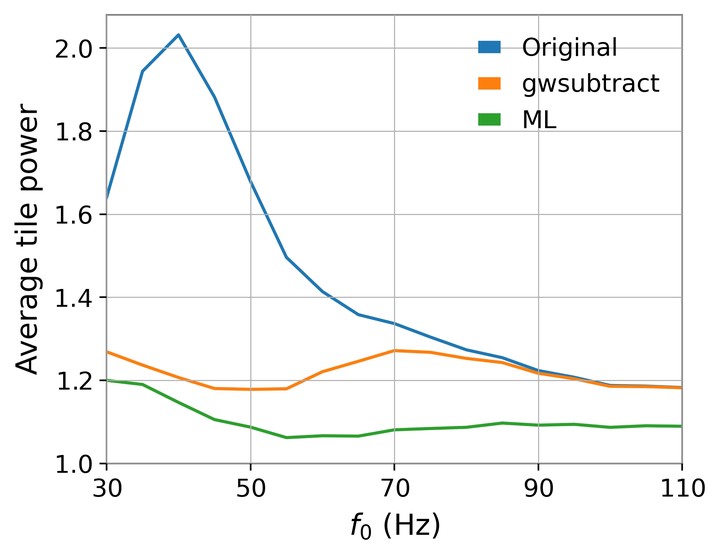Probabilistic noise estimation
 Measured non-Gaussianity for three data sets around GW200129.
Measured non-Gaussianity for three data sets around GW200129.Gravitational-wave interferometers are one of the most sensitive instruments in the world. They can measure as small as a $10^{-20}$ change in the spacetime. However, such a sensitivity comes at a cost: even ocean waves hundreds of kilometres away can introduce noise in the gravitational-wave data.
This excess noise needs to be removed, especially if it overlaps an astrophysical signal in the gravitational-wave data. For example, I created a machine-learning algorithm to remove the radio frequency noise around GW200129 (see the nlsub project).
To determine whether this algorithm removes noise better than other techniques, I had to develop a sensitive method to measure the amount of non-Gaussian noise in the data. Using mixture models, I showed that my machine-learning algorithm indeed removes more noise than the conventional methods used at the time.
For more, read our article on PRD: link or free-access version on ArXiv: link.